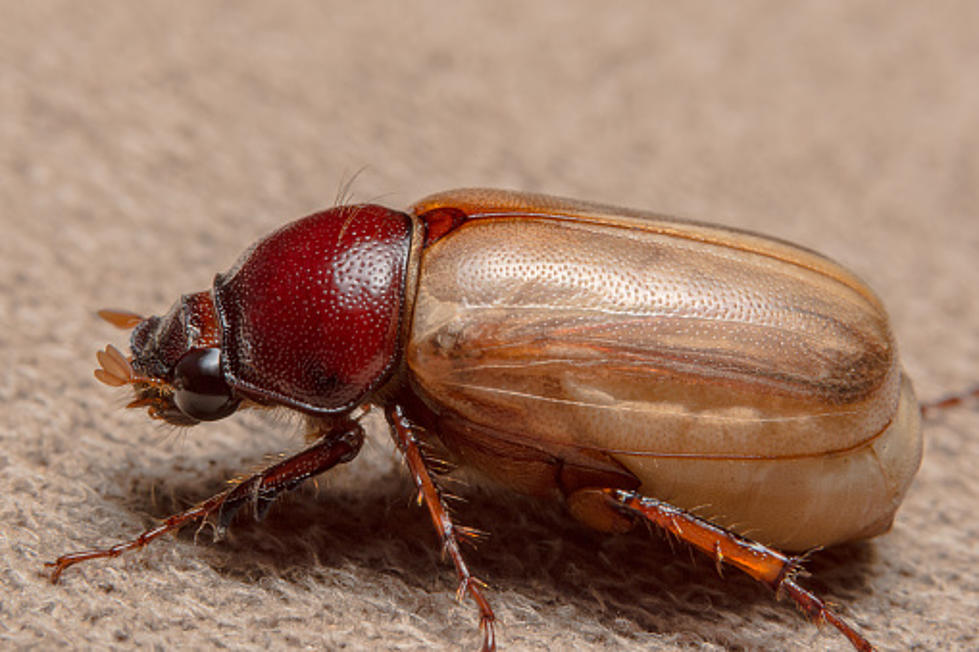
It’s July, So Why is My Yard Crawling With June Bugs?
Every year, my yard plays host to some really, really unwanted visitors, and I'm willing to bet that your yard does, too. No, I'm not talking about your in-laws, I'm talking about what most of us call "June Bugs."
As I write this, it's July 14th, and these "June" bugs are still hanging around, and frankly, getting more numerous. It's like they can't read a calendar or something.
If you're looking at the photo thinking, "The ones in my yard look a little different," that's because there are somewhere around 300 different types of June bugs.
From Britannica:
June beetle (genus Phyllophaga), also called May beetle or June bug, genus of nearly 300 species of beetles belonging to the widely distributed plant-eating subfamily Melolonthinae (family Scarabaeidae, order Coleoptera). These red-brown beetles commonly appear in the Northern Hemisphere during warm spring evenings and are attracted to lights.
The heavy-bodied June beetles vary from 12 to 25 mm (0.5 to 1 inch) and have shiny wing covers (elytra). They feed on foliage and flowers at night, sometimes causing considerable damage. June beetle larvae, called white grubs, are about 25 mm (1 inch) long and live in the soil. They can destroy crops (e.g., corn [maize], small grains, potatoes, and strawberries), and they can kill lawns and pastures by severing grasses from their roots. Each female buries between 50 and 200 small pearl-like eggs in the soil. After three years of feeding on plant roots, the larvae pupate, emerge as adults in late summer, and then bury themselves again for the winter. In the spring the adults emerge once more and feed on available foliage. Adults live less than one year.
At our house, the preferred method of dispatching these bug is by using our electric bug swatter. If you're not familiar with the electric swatters, take a look at this:
If that kind of bug removal is too up-close-and-personal for you, here's something that worked really well for this guy:
Oh, back to my earlier remark about in-laws. If you have problems with both the June bugs and the in-laws, you could probably get rid of both by doing what this guy suggests:
More From WROK 1440 AM / 96.1 FM









